--------------------------------------------------
In any city it is interesting exploring the landscape of bookshops. Do they actually tell something about the cultural life in the particular city? Or are they so much mainstreamed into the global cultural exchange and dominated by the cultural hegemony of international power centres, that they do not really reflect the face of local habits and preferences? Like in the case of cinemas around the globe showing the same movies?
Beirut, like other big cities has these chain bookstores that sell almost everything made of paper: newspapers, journals, diaries, children’s books, novels, politics, photo books, whatever. These are the bookshops that most reflect global hit lists – with a focus on American and French bestsellers and usually a good selection of what is interesting. Special orders, however require patience as it takes about 4 weeks to get a book.
Then there are these places in small side streets. Some steps down into the hardly illuminated half-basement of an old building lead to one room, stuffed with books of all ages, languages, shapes, although French prevails. After the eyes adjust to the environment they discover the owner in a corner, seemingly covered in the same dust, and perfectly melting into the yellowish background of his surroundings. The books are stored in his personal order and the inventory is entirely in his head. A certain essay of Sartre? Maybe. Maupassant, Rimbaud, Balzac, Zola? Certainly. Contemporary literature? Rather not.
A similar experience is a visit at the bookstand at Souk Al Ahad, Beirut’s weekend sort of flea market. In this buzzing commercial surrounding it stands there a bit alien. Are books really a commercial good? Like the shoes and the clothes? But at the same time, there, at this place, opposite to an antiquities seller and next to the (used) electronics spare parts, broken radios and used dishes, it feels less strange. The books on sale have shared the lives of their owners for some time, have exchanged some particles of existence and certainly nicotine with them, and are now on suspense until tasked with a new environment.
My favourite bookshop is in Hamra. It is one room, and if there is somewhere a platonic idea of a bookshop, this must come close. Stepping in from the noisy street opens a different universe. Conversations with the owner can take across time, and space and meaning. And you may come out as a different person – for a minute or for a day.
Gisela Nauk
Dear Gisela,
In Beirut, since ever and until now, there has been a utopian government ruling the city, I will not tell you now about all its beautiful departments, I will only talk about the department of finance.
At the head of this department is a person like no other; very dedicated, very fine, very passionate about what he does. A simple motto behind the whole department is "as long as it looked like your person". This motto is confidential, none of the business owners is to know about it, the reason behind its confidentiality is of course less room for the mastering of acting and manipulation of the business owners. Simply this motto dictates the amount of taxes you have to pay as a business. The more the business shows how passionate you are about the content of what you are selling the less taxes you pay. This leads if not for the growth of beautiful little businesses, at least for the survival of them in the face of big ones.
The relation between the department of finance and businesses is very direct; papers, invoices, and numbers are to come as a second factor after the regular visits by the employees of this department, they enter the shop with the intention to buy your commodity, they ask you about it, they test if you know its history, when it was made and by who and they ask for your preference, they try to see your person in the commodity. Bookstores for example, have an even more special treatment; they have VAT waivers in addition to this rule. So, you can imagine now why we did have most of our beautiful conversations in "the little bookshop" in Hamra?
No dear! I'm joking ... This story is a utopian lie, which will never happen anywhere in the world. I am just pointing out how lucky we are to have a few bookshops that are very personal, and that beautiful conversations are happening there because passion for books is the drive behind their existence and not money. Which I think only a person who digested enough books throughout his life, is willing to live this struggle of surviving a quality little bookshop in the face of big ones!
Best,
Diana Halabi
--------------------------------------------------
Dear Human,
It's most likely that you know how I cooperate with incidents, even if rarely.
I am so present even if sometimes it feels I'm not, I just go from intense green to transparent, but always filling the room ... A physical room you see with your eyes, or perhaps the one you don't see behind your eyes. When given a body, I can be the door, I can be the couch, I can be his or her favorite meal. I keep you, him, her, and them alive...But in extremes of dilution or intensity, I can be fatal!
There is not, and never will be, a guidebook on how to use me, but coming from 17'000 thousand cases I have attended in Lebanon, I can tell you: with a mix of some logic and some irrational sense of holding onto me ... I managed to be exhibited and shown to the public several times.
Now I'll switch to speak about the eyes of the spectators! I'm sure you are asking yourselves how the mothers of the missing people in civil war still manage to hold onto me, even after the end of the war in 28 years. Ah! By the way it's me "hope" speaking.
I will tell you something! Me and closure work against one another. And there are times that I'm fading away to become almost transparent. Fortunately one of the missing people would get back to his family, he would start telling them about people in which he knew about, talked to, or heard about during his years in jail, and guess what? I'll be present back strongly and profoundly in the houses of 16999 family.
Me and waiting work hand in hand.
Have you ever seen someone waiting without hope?
Have you ever seen someone hoping for something without waiting for it?
In a grammar lesson you would learn that hoping is to wait for something that might actually happen, while wishing is usually said when there would be no possibility of getting what you wish for ... In Lebanon, there is still hope that one day these families will be helped out of the psychological burden of waiting ... To at least have a clear vision, that will enable them to know on what ground they stand ... "Wish" or "hope"?
Sincerely yours,
Hope.
Diana Halabi
August 30 is the International Day of the Victims of Enforced Disappearances. For several countries this day has a special resonance, and Lebanon is one of them. In the morning, relatives of people who went missing during the civil war had a manifestation in the city center, and in the evening a small art exhibition opened in the gallery Art on 56th.
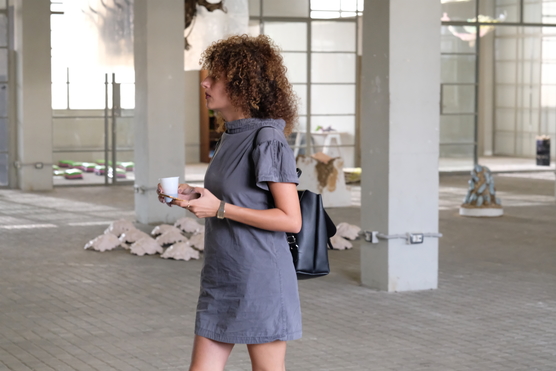
Diana Halabi, born in 1990 in Saida, South Lebanon, studied interior architecture at the Lebanese University of Beirut, and pursues since 2012 her career as an artist. She recently started developing her practice in a multidisciplinary medium, working with text, sound, and video. More about her work here.
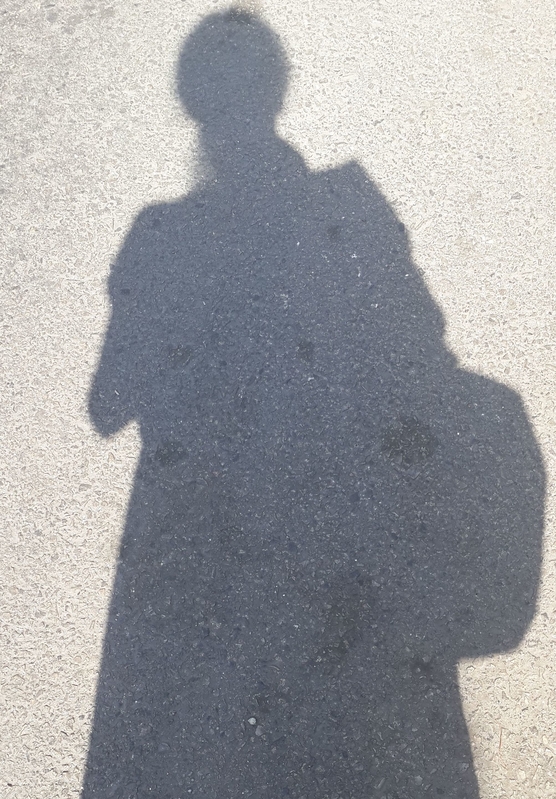
Gisela Nauk is a political economist, living and working in Beirut.
----------------------------------------------------------------------------------
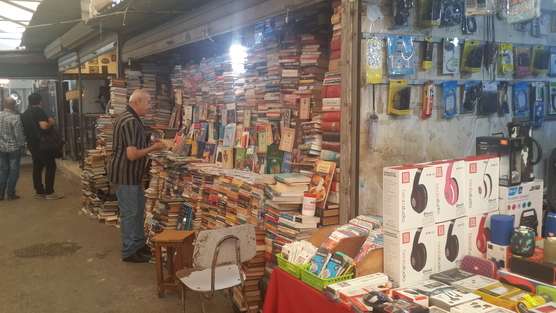
© Gisela Nauk
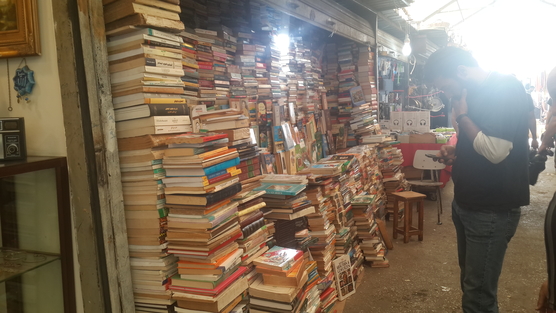
© Gisela Nauk
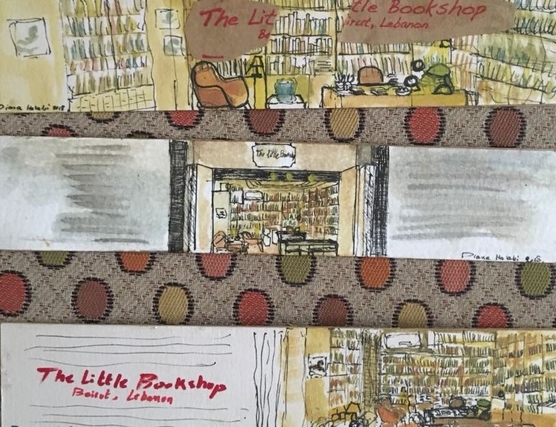
Bookmark of "The Little Bookshop", © Diana Halabi
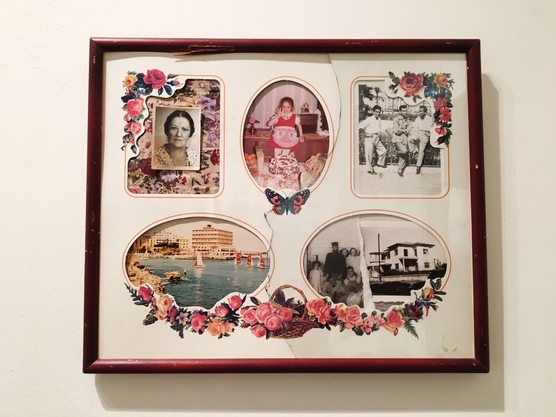
From the exhibition Absence/Presence, Art on 56th – Artist Julian Bonnin, August 30, 2018 © Julian Bonnin
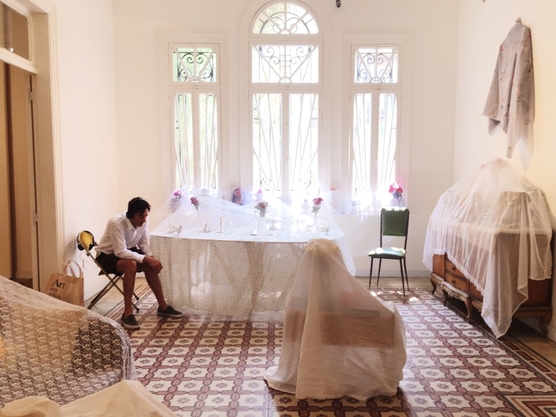
From the exhibition Absence/Presence, Art on 56th – Artist Hussein Nasrdeen, August 30, 2018 © Hussein Nasrdeen
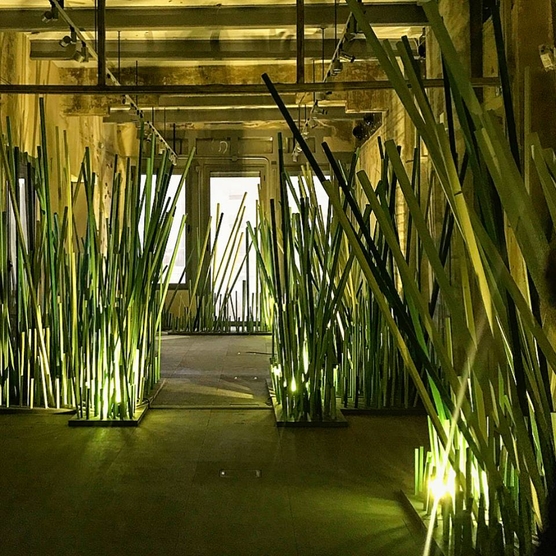
Zena al Khalil’s installation at Beit Beirut, September, 2017 © Zena al Khalil
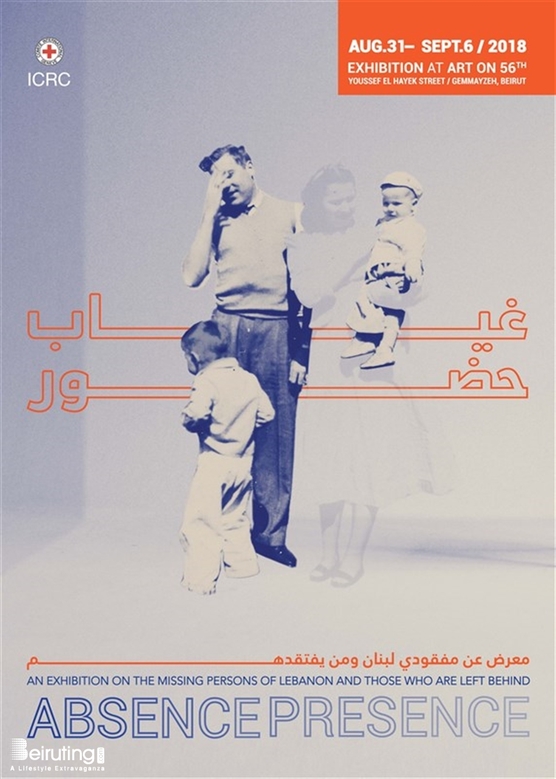
Exhibition announcement, Absence/Presence